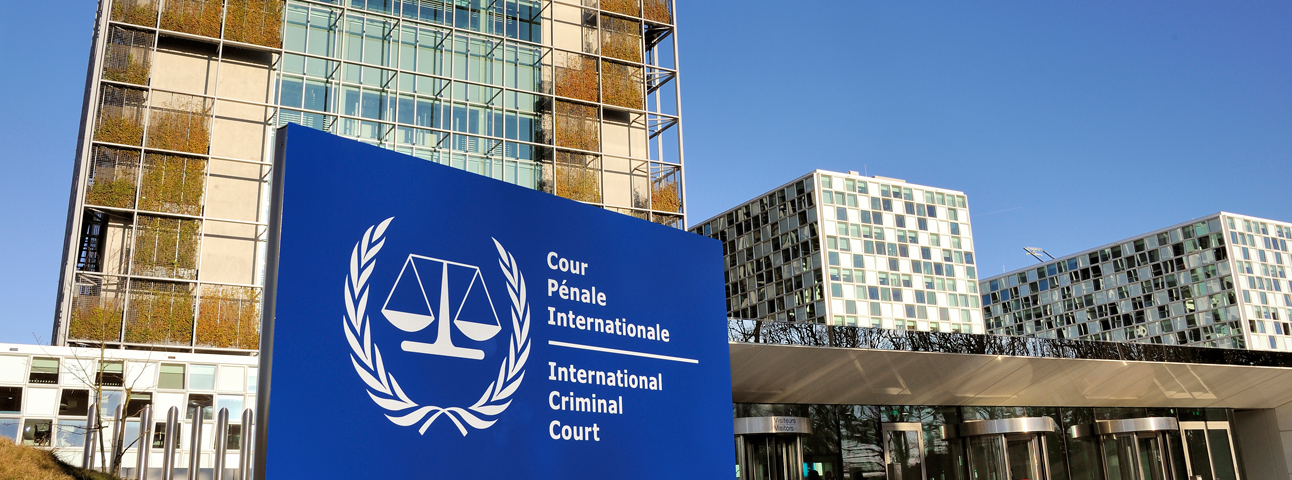Palestinians are Playing the Long Game on World Stage – Israel Could Lose
The government's aim to apply sovereignty in the territories and soften the Supreme Court may harm Israel's global standing

The United Nations General Assembly recently approved a resolution calling on the International Court of Justice (ICJ) to render an opinion on whether the continuing Israeli occupation of the territories has become permanent, and in fact an annexation of the territories. In principle, the Court’s opinions are not binding, and its decisions cannot be directly translated into steps against Israel. However, in practice, the petition of the case to the ICJ is part of a broader Palestinian strategy, and in the present international climate is liable to have significant implications.
In recent years, the Palestinians have adopted the practice of involving international institutions in their conflict with Israel. These efforts include their appeal to the ICJ on the legality of the separation fence, a push for the establishment of international commissions of inquiry after every military operation in Gaza, complaints to the International Criminal Court that led to a pending investigation of Israeli actions related to the conflict, and a drive to have Palestine admitted as a member state of various international organizations.
The Palestinian activity in international organizations is coordinated and aggregate. For example, the General Assembly’s recognition of the State of Palestine in 2012 provided the basis for the determination that the International Criminal Court has the authority to investigate Israeli actions related to the conflict. An ICJ decision that the Israeli occupation is illegal would serve as the basis for additional proceedings against Israel.
Developments in Israeli law are also liable to affect the legal ramifications of the ICJ proceeding. In 2004, it published an opinion that the construction of the separation fence in the territories was a violation of international law. In practice, no steps were taken against Israel as a result of that ruling. A significant factor in Israel’s ability to fend off the opinion was the fact that the Supreme Court had looked into the issue and concluded that the fence was legal under international law. In several places, the Supreme Court even intervened and ordered that its location be modified in order to comply with international law.
However, it seems that the Supreme Court’s willingness to impose international law on Israel’s activities in the territories is no longer as resolute as in the past. In recent years, the court has refrained from intervening in issues related to international law. If the Override Clause is enacted, the Court’s authority to review Israeli actions in the territories will be weakened even more, and the Knesset will be able to pass legislation such as the Settlement Regulation Law, which the Court struck down in 2020. In this situation, it is quite likely that international tribunals will pay no attention to proceedings in the Israeli Supreme Court and not view them as a reason to refrain from investigating the issues.
Furthermore, the declarations of the recently formed government seem to weaken Israel’s position in the expected proceedings before the ICJ even more. The first sentence of the “fundamental guidelines” of the new government state that “the Jewish people have an exclusive right over the entire land of Israel.” The coalition agreements state that “the Prime Minister’s policy will be to apply Israeli sovereignty in Judea and Samaria.” These declarations are not yet law, of course, but they reveal that the direction of the new government is to strengthen Israel’s control over the territories. This strengthening might provide support to the Palestinian claim regarding the intentions of Israel to remain in the territories permanently.
Is Israel to Judea-Samaria as Russia is to Ukraine?
The anticipated ICJ hearing must also be viewed in the context of the war between Russia and Ukraine. In 2014, Russia annexed Crimea – part of Ukraine. A few weeks ago, Russia announced the annexation of additional Ukraine districts, among them districts in which the war is still raging. In addition to the international condemnation of the annexations, the West has begun taking coordinated steps to weaken the Russian economy by imposing heavy sanctions on it. This tactic is based on the legal approach that when there are severe violations of international law, it is not enough to issue statements condemning the perpetrator, and the world is obligated to take action to end the violation. In compliance with this obligation, many western countries imposed sanctions on Russia after its annexation of Crimea in 2014. These sanctions were made more stringent to an unprecedented level in 2022, in response to the Russian invasion of Ukraine in February 2022. Today, large segments of the Russian economy are subject to international sanctions.
There are significant t differences between the Russia-Ukraine conflict and that between Israel and the Palestinians. But the most recent Palestinian action is meant precisely to blur them. An ICJ declaration that the Israeli occupation has become “permanent” would mean that Israel could be seen as having effectively annexed Judea and Samaria. If that is the conclusion, international law will require European countries to take action against Israel. Such measures – as can be learned from the Russian case – can be imposed even without the backing of international bodies such as the Security Council. Obviously, Israel has scant ability to ward off the effects of such decisions.
A right-wing Israeli Government will not bow to the dictates of the international community. But Israeli policies that include unilateral steps on the ground, along with continued pressure by the Palestinian Authority, are liable to stir up the international community to action and pose an extremely serious challenge for the Israeli government in the coming years.
The article was published in the Times of Israel.
